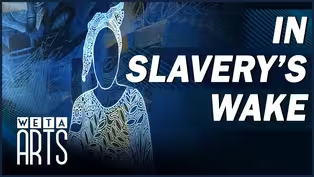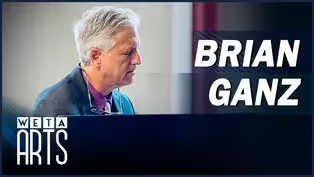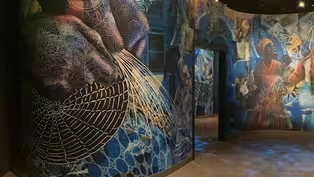
Denyce Graves: From DC Roots to Opera Icon
Clip: Season 12 Episode 5 | 9m 7sVideo has Closed Captions
Felicia Curry sits down with Denyce Graves to discuss her life and career.
Internationally acclaimed mezzo-soprano Denyce Graves has graced the world’s greatest opera stages—but her journey began in Washington, D.C. WETA Arts host Felicia Curry sits down with Graves at her Maryland farm to discuss her path from gospel singing in Ward 8 to international stardom, the mentors who shaped her, and her mission to elevate hidden voices through the Denyce Graves Foundation.
Problems playing video? | Closed Captioning Feedback
Problems playing video? | Closed Captioning Feedback
WETA Arts is a local public television program presented by WETA

Denyce Graves: From DC Roots to Opera Icon
Clip: Season 12 Episode 5 | 9m 7sVideo has Closed Captions
Internationally acclaimed mezzo-soprano Denyce Graves has graced the world’s greatest opera stages—but her journey began in Washington, D.C. WETA Arts host Felicia Curry sits down with Graves at her Maryland farm to discuss her path from gospel singing in Ward 8 to international stardom, the mentors who shaped her, and her mission to elevate hidden voices through the Denyce Graves Foundation.
Problems playing video? | Closed Captioning Feedback
How to Watch WETA Arts
WETA Arts is available to stream on pbs.org and the free PBS App, available on iPhone, Apple TV, Android TV, Android smartphones, Amazon Fire TV, Amazon Fire Tablet, Roku, Samsung Smart TV, and Vizio.
Providing Support for PBS.org
Learn Moreabout PBS online sponsorship[Singing in Italian] Curry, voice-over: Although internationally renowned singer Denyce Graves performs in the most prestigious opera houses in the world, she's also local.
Hi.
Hello!
So, why don't we go up to the garden?
Sounds great.
That's one of my happy places.
Well, all of this is my happy place, actually.
It looks like it.
Ha ha!
I love getting my hands dirty, and I always wanted space.
I imagine people, when they think of you onstage in gowns, are not thinking of this at all.
I know!
Curry, voice-over: Graves shares her time between the world's most famous concert stages and Parkton, Maryland, where she maintains an 88-acre farm.
Look at that.
Look at that.
So, we'll put that in our salad today.
How do you marry a life where you stand onstage with something like this?
I feel like this place is what allows me to continue to do the work that I'm doing.
♪ For love is... ♪ Curry, voice-over: With a vast repertoire of countless critically acclaimed performances, Denyce Graves became one of the most celebrated mezzo-sopranos in the world, and her journey started right here in Washington, D.C. [Gospel choir singing] Curry, voice-over: Graves grew up with her mother, brother, and sister on Galveston Street in Ward 8 in Southwest D.C.
Her early exposure to music was singing gospel in her church.
Growing up, opera was not something she was aware of, much less a future she envisioned.
I'm excited to learn how she got to where she is today.
Denyce, thank you for inviting us into your home to chat today.
It's a joy for me, too.
Thank you.
So, for a young Black woman to grow up in Southwest D.C., how does opera become the genre that you want to pursue?
It was quite the journey from there to here.
My music teacher from kindergarten, actually, Judith Grove Allen, told me about the Duke Ellington School.
[Organ music] ♪ The Duke Ellington School and the Kennedy Center have a relationship, and I went to a final dress rehearsal of Beethoven's "Fidelio."
[Woman singing in German] [Man singing in German] That really did it for me-- I just thought, "I don't know what this is, but this is what I want to do."
That and also hearing a recording of Leontyne Price sing and being just stunned by the sheer beauty of her voice.
[Price singing in Italian] Specifically Leontyne.
Specifically Leontyne because she sings, and you hear the choir singing.
[Singing in Italian] Graves: It's just one of those exquisitely, heartbreakingly beautiful voices that will stop you right in your tracks.
♪ To see this woman who looks like us doing this thing called opera and saying, "I would love to be able to do this with my life."
And did this lead to wanting to go to a conservatory?
Yes.
I graduated early from the Ellington School, went to Oberlin College, and then went to New England Conservatory and then went on to Houston Grand Opera.
[Chorus singing "Habanera" in French] Curry, voice-over: Her star rose with her first appearance in the title role in the opera "Carmen" by Bizet at the Minnesota Opera in 1991, and from there, she took to the world's great opera houses, and fame among opera fans followed.
[Applause] Patti LaBelle: I think she has the most special voice that I've ever heard... Curry, voice-over: Her celebrity crossed over to mainstream with appearances with pop stars, at national memorials, and even on "Sesame Street."
I just want to ask, the path to opera when you have a voice like this but live in a community that maybe doesn't know or understand about opera, how is that?
So, this is part of a really large conversation in terms of American history and what has been intentionally left out of the telling of the story.
During the pandemic, there was a student of mine who was singing outside of what was formerly known as the National Negro Opera Company that was created by Mary Cardwell Dawson.
She was this Black woman who wanted to be an opera singer, so she went to the New England Conservatory.
That was 1925.
For her to star as a leading lady on the world's opera houses as a Black woman was not gonna happen, so, her response to that was, "Well, I'll create my own opera company."
She hired all the singers and the orchestra and the conductor, the director, the designers, and she took them all over the United States, including the Metropolitan Opera at a time where Black performers were not at the Metropolitan Opera.
The union would not allow them to do standard repertoire, so, they did a piece by African American violinist and composer Clarence Cameron White called "Ouanga."
Of course, it was to great acclaim.
She taught piano.
She taught voice.
She taught languages.
She taught stage direction and launched the careers of so many spectacular artists, like Robert McFerrin, Ahmad Jamal, Lillian Evanti, Camilla Williams.
The first woman impresario of opera was a Black woman.
I did not learn that in the conservatory, not at all.
You started the Denyce Graves Foundation, which is highlighting voices of Black opera singers that none of us knew about.
Our Hidden Voices program is showing that Black classical performers have existed from the very, very beginning.
We are working on creations of works of art that tell the story of these wonderful, great heroes.
So, that's the Hidden Voices program, and then there's the Shared Voices program, which is an HBCU conservatory exchange program.
Choir: ♪ Oh, when we get way over in Beulah lan' ♪ ♪ Yes, way over in Beulah lan'... ♪ We pair a HBCU student with a conservatory student, and they learn from each other.
♪ Way over in Beulah lan'... ♪ Graves, voice-over: We know that HBCUs have a great tradition of glee clubs and choral groups and some of the most spectacular voices we've ever heard.
[Singing in French] Graves: We've got Morgan State, Peabody, Fisk, and Morehouse and Howard, Oberlin College, Manhattan School, and the Juilliard School.
I'm just over here beaming because the idea of access, opportunity, and community are all part of what you're doing, and that is-- As a young, Black musician growing up, that's what was missing.
That's exactly right.
The foundation's work is much larger than music.
We go through the lens of music because that's been the area of my experience.
♪ My soul is a witness... ♪ We're celebrating and lifting into rightful prominence those great individuals who have contributed to our cultural fabric, who make America what it is, but who have been left out of the telling of the story.
Why is it that when I went to the conservatory, I had White professors say to me, "What are you doing here?"
Right.
I don't necessarily blame them.
They've heard a story that didn't include a face like mine.
And this is why it's exciting for me to know that you're in conservatories teaching.
It's so important because it helps us all as a nation.
The reason that this country is so great is because it's made up of all kinds of different people who have contributed to make it what it is.
It isn't just one group of people who've done all the work and done everything.
I've portrayed all kinds of characters.
For more than 40 years, I've told all kinds of stories, and the stories that's important for me to tell now are those stories of truth, are those stories of inclusion, are those stories that remind us that we are more alike than unalike.
That's so vitally important for our survival.
So, we're gonna keep sharing so that people realize that it's a place for all types of people.
Well, Denyce Graves, you are the Leontyne Price of your generation, and I am so grateful that I had the opportunity to sit down and speak with you today.
I loved every moment.
Thank you.
Thank you.
Thank you for doing this.
Denyce Graves appears in the Washington National Opera's "Porgy and Bess" May 23rd to 31st.
See kennedycenter.org for details.
Also, Graves is the director of a world premiere called "Loving v. Virginia" with the Virginia Opera and Symphony, whose performances start April 25th.
Go to vaopera.org for details.
"In Slavery’s Wake" is a Groundbreaking New Exhibit at the Smithsonian NMAAHC
Video has Closed Captions
Clip: S12 Ep5 | 8m 4s | Explore "In Slavery’s Wake: Making Black Freedom in the World," a new exhibit at NMAAHC. (8m 4s)
Meet the Man on a Journey to Perfect Frédéric Chopin's Music
Video has Closed Captions
Clip: S12 Ep5 | 9m 42s | Pianist Brian Ganz reflects on his lifelong connection to Frédéric Chopin. (9m 42s)
Preview: WETA Arts February 2025
Preview: S12 Ep5 | 30s | Nat. Museum African American History & Culture; singer Denyce Graves; pianist Brian Ganz (30s)
Providing Support for PBS.org
Learn Moreabout PBS online sponsorship

- Arts and Music
The Best of the Joy of Painting with Bob Ross
A pop icon, Bob Ross offers soothing words of wisdom as he paints captivating landscapes.












Support for PBS provided by:
WETA Arts is a local public television program presented by WETA



